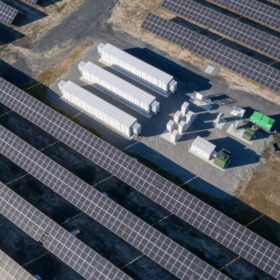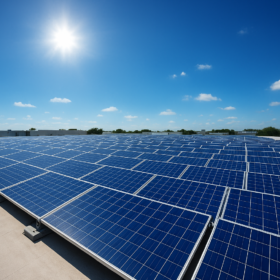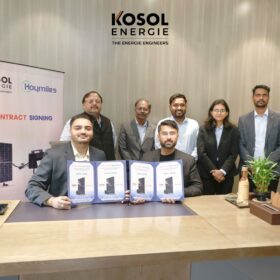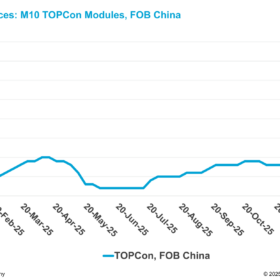Rajasthan tenders 2.45 GW solar power projects with battery storage at Pugal Solar Park
Rajasthan Solar Park Development Co. Ltd (RSDCL) has launched a tender inviting proposals to set up 2,450 MW of state transmission utility (STU)-connected solar PV power projects with 1,600 MW/6,400 MWh battery energy storage systems at the Pugal Solar Park in Bikaner district of Rajasthan. The projects will be developed on a build-own-operate (BOO) basis.
SECI concludes 1.2 GW solar plus 600 MW/3,600 MWh storage tender at INR 3.12/kWh
The Solar Energy Corp. of India’s (SECI) tender for 1.2 GW of interstate transmission system (ISTS)-connected solar projects, integrated with 600 MW/3,600 MWh of energy storage systems (ESS), has discovered a tariff of INR 3.12/kWh.
India’s solar capacity additions on track: SBICAPS
India is estimated to have added a record 40 GW of solar capacity in CY 2025, supported by strong utility-scale execution and a surge in rooftop installations. Energy storage tendering also picked up pace.
Clean-tech startups are quietly turning India’s air pollution crisis into a renewables opportunity
Startups are rewriting the narrative of India’s environmental challenge by building a bridge between air quality restoration and renewable energy expansion—a synergy that promises to fundamentally reshape how India confronts both crises simultaneously.
SECI tenders balance-of-system package for 700 MW AC solar project in Gujarat
The Solar Energy Corp. of India Ltd. (SECI) has invited bids for the Balance of System (BoS) package for a large-scale solar PV project with a capacity of 700 MW (AC) at Radhanesda in Banaskantha district of Gujarat. The scope covers the execution of the project on a turnkey basis, excluding the supply of PV modules and transformers.
Saudi Arabia reveals qualified bidders for 3.1 GW solar auction
Saudi Power Procurement Co. (SPPC) has announced the qualified developers for the seventh round of Saudi Arabia’s renewable energy tender program, featuring four solar projects with a combined capacity of 3.1 GW.
LEAPTING to deploy 2,000 G1 cleaning robots across Waaree Renewables’ 1.2 GWp solar projects
LEAPTING (Huzhou LEAPTING Technology Co., Ltd.) has secured a major contract with Waaree Renewables to deploy more than 2,000 PV module cleaning robots across three large solar plants in Rajasthan. The projects have a combined installed capacity of around 1.2 GWp and are built on 2P fixed-tilt structures.
Hartek secures INR 353.77 crore solar and battery storage EPC project in Karnataka
Hartek Power has secured an engineering, procurement and construction (EPC) contract worth approximately INR 353.77 crore for a 280 MW AC (410 MWp DC) solar PV power plant integrated with an 80 MW/320 MWh battery energy storage system (BESS) in Karnataka.
The role of domestic manufacturing in India’s power security
India’s power landscape is undergoing a structural inflection point where domestic manufacturing has shifted from a supporting function to a central pillar of national energy security.
Axis Energy proposes INR 31,750 crore renewable energy investment in Odisha
Axis Energy plans to develop a diversified portfolio of nearly 5 GW of clean energy capacity across wind, solar, agri-photovoltaic (agri-PV), hybrid projects, and battery energy storage systems (BESS) with an investment of INR 31,750 crore.















